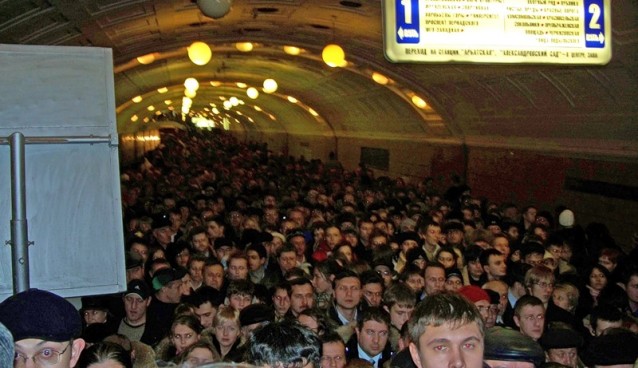Moscow is the second biggest city in Europe in terms of population, after Istanbul. According to 2014 data there are 12.1 million people living in Russia’s capital. London, which comes third in the list of largest European cities has 8.3 million inhabitants. For the past decade Moscow population increased by almost 2 million, mostly due to migration.
Population Growth
Like many metropolises in the world, Moscow attracts thousands of migrants from other parts of Russia and other countries, mostly from the ex-Soviet camp (e.g. Ukraine, Tajikistan, Uzbekistan etc.). Some say that legal and illegal immigrants in Moscow account for another 2-5 million, which may as well take the total number of city’s population to 15-17 million!
Natural growth (i.e. growth due to higher birth rates) has also become a small contributor to an increasing population of the city. For a long time it wasn’t the case; from the start of 90’s and up until 2011 deaths exceeded births in Moscow and in the whole country. But perhaps due to an improved economic situation and Putin’s policies aimed at tackling demographic crisis, couples are more inclined to have babies.
Reasons for Moscow’s Population Growth
I myself wasn’t born and raised in Moscow, my family moved here in 2003 when I was 15. Most people I know here are originally not from Moscow but came here either to study or work from other regions of our vast country.
Why do people move to Moscow?
- More job opportunities – Most businesses prefer to have their headquarters and offices in Moscow. Public sector and government jobs are mostly concentrated in the capital. Service sector is so much more developed here than in other parts of Russia. Plus today Moscow also reminds me of a huge construction site with lots of roads, residence blocks and shopping malls being built, thus creating thousands of construction jobs. So clearly there are much more jobs on offer in Moscow than in any other city in Russia!
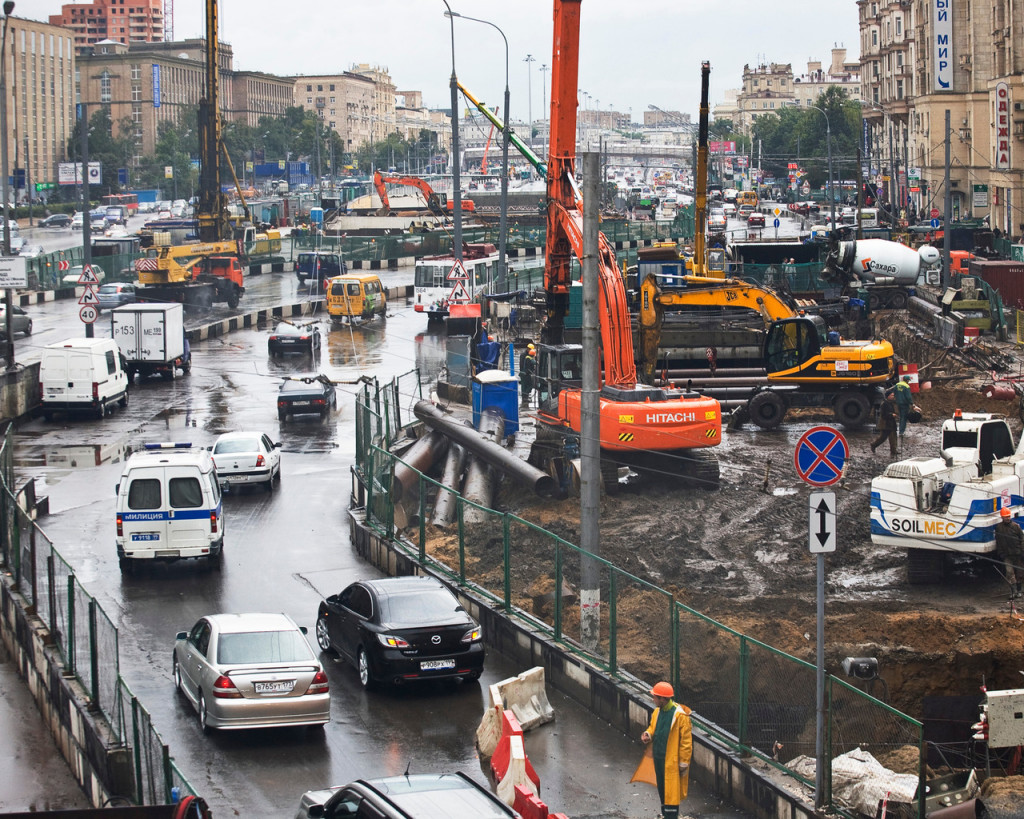
- Infrastructure and living conditions – Moscow is cleaner, roads and public transport are way better than in most of Russia. Moscow, being the cultural center of the country, offers more entertainment and interesting things to do starting from a pleasurable walk in a historic city center, museums and galleries up to abundance of great restaurants, cafes, bars and clubs. (P.S. On the other hand, a lot of people will argue that everything is way too far away in a city as big as Moscow, there are constant traffic jams, and crowds of people in the tube…)
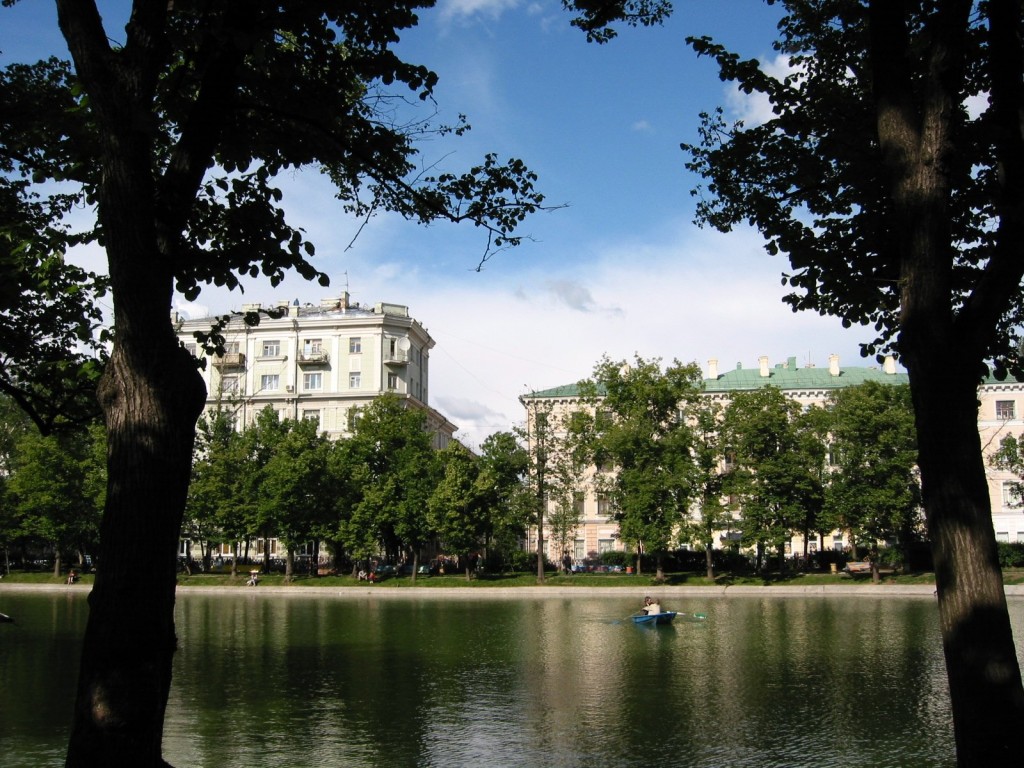
- Average salaries are higher in Moscow compared to the rest of Russia. Muscovites on average receive around 57,000 rubles a month ( £950, $1,600 ) – or 42, 000 (£700, $1,180) according to Yandex – which is about 60% higher than the average in other Russian cities where average salaries vary from 17,000 (£285, $477) to 26,000 rubles (£435 , $730).
- In 2011-2012 new territories were added to the city boundaries in an attempt to create more living space for Muscovites and break away from the usual mono centric city structure (‘New Moscow‘). Even though territorial expansion was quite significant (see picture below), population of Moscow grew only by 250,000 as those areas weren’t hugely populated.
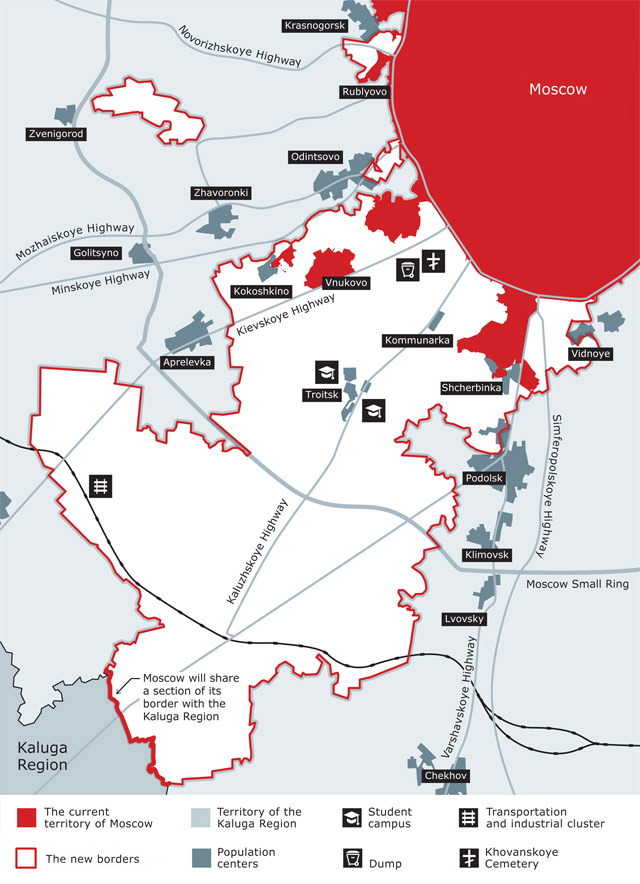
Attitudes to Immigrants
Well, that’s an interesting topic that most of Muscovites have a say about. There is a common saying here: “Moscow is not made of rubber” meaning that people keep coming from all over the country and ex-Soviet states, and Moscow can’t stretch any more. That is often an attitude I see in native Muscovites who say they are fed up that every year there are less and less “city natives” in Moscow. Being not a native Muscovite I obviously do not share that sort of sentiments.
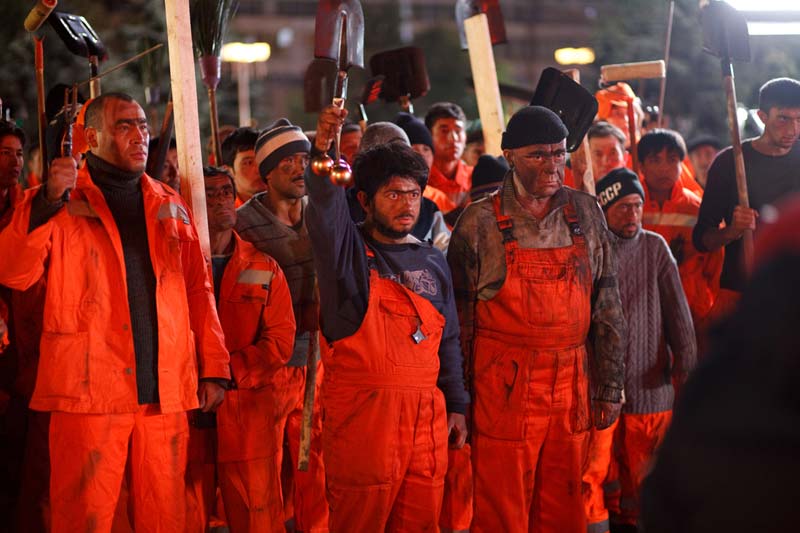
Attitudes to migrants vary depending on where those come from and whether they are here legally or not. Expats from the West are adored here I would say. But there is a general dislike of migrants from Central Asian ex-Soviet states like Tajikistan, Kyrgystan, Uzbekistan and so on. Before I came to live in Moscow I did not understand why there was so much negativity towards them. I just thought that most Russians were racists (well, some actually are!). I think I understand better now… People dislike uneducated, unskilled illegal workers who have no intention of learning Russian and who often look a bit dirty and scary when you see them on the streets. I think generally people have no problems with migrants who speak decent Russian…
Curious fact
One millionth Moscow citizen was born in 1897! So until the end of the 19th century Moscow wasn’t anywhere near as big as today. Just to compare, London had one million citizens already in 1800 and by the end of the century it grew to 6.7 million!
